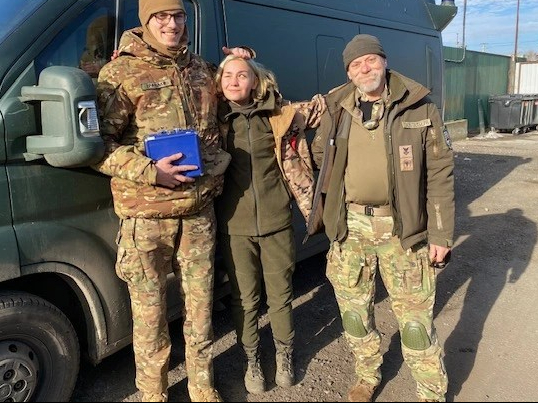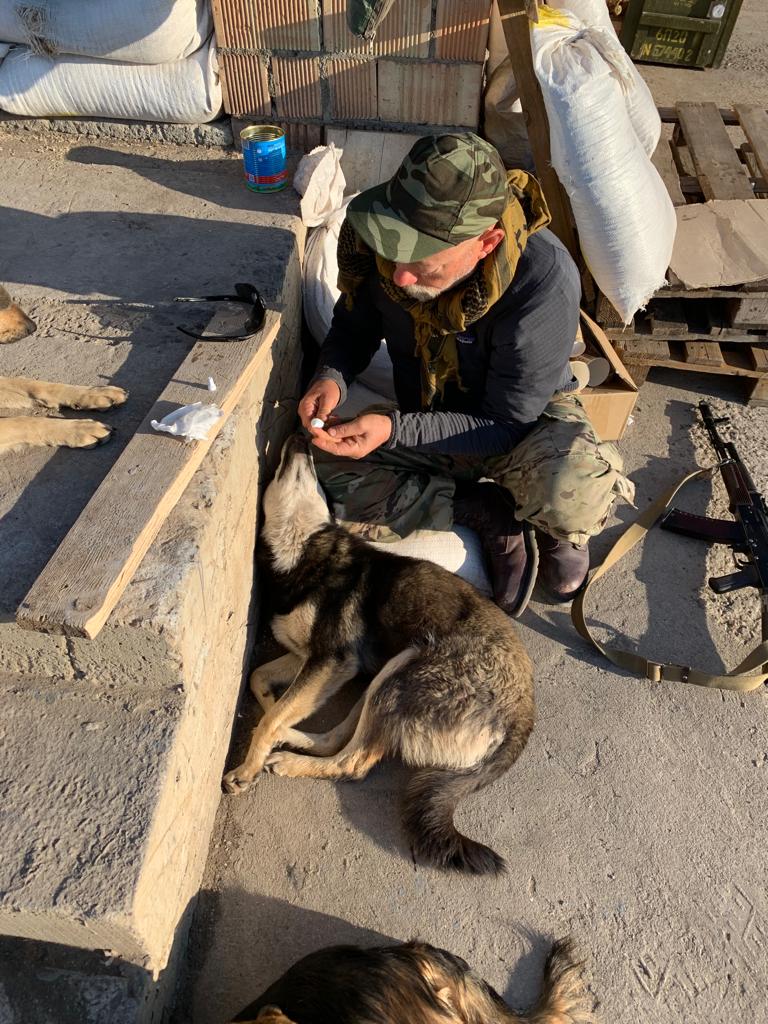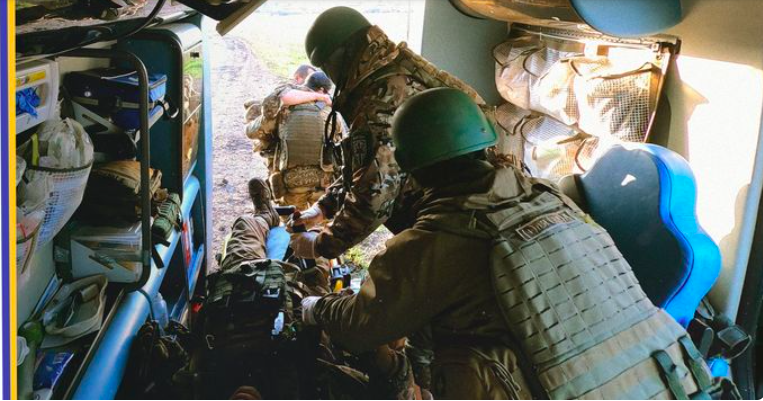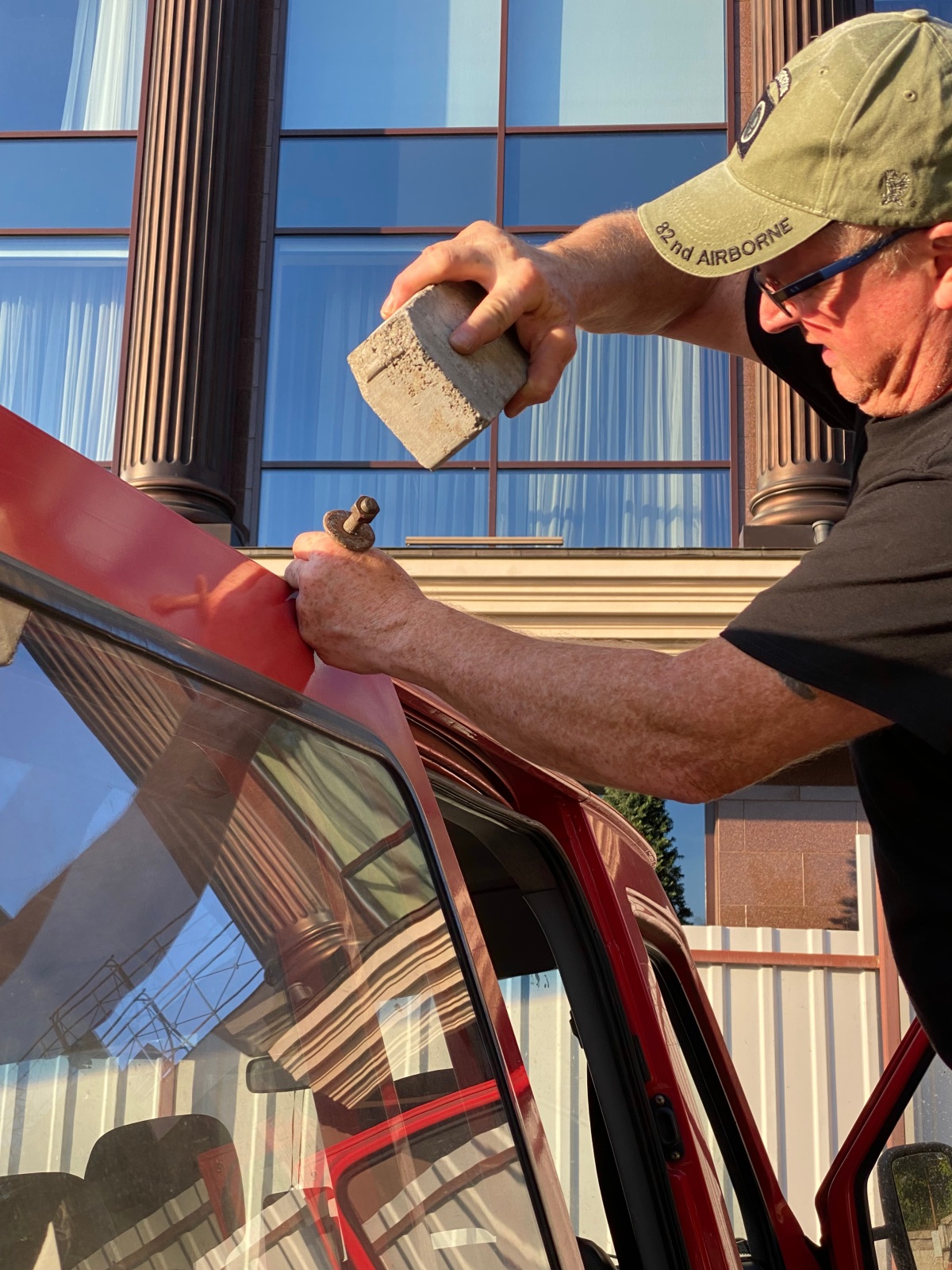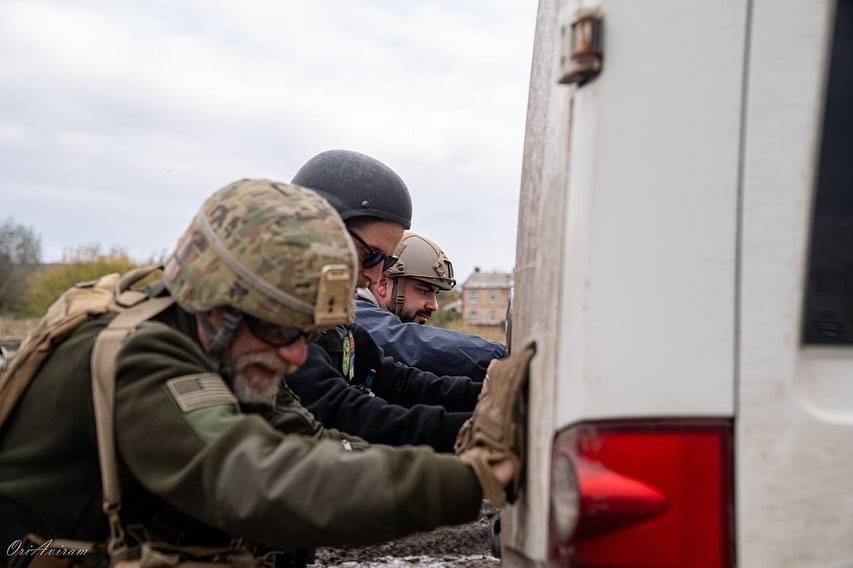A smarter person than me once said this about war: “Amateurs talk about strategy. Professionals talk about logistics.” America wins wars for two reasons:
- We never stop training. Never.
- We have the most highly-developed logistics system in the world.
Ukraine has the most important ingredient for victory. Call it spirit, call it heart, call it motivation: when your family is literally behind you, you will fight very, very hard. Training: we have more and more of it all the time, thanks in large part to nice people like you. Logistics: it’s a fucking mess. We went from having a busy shipping port in Odessa to not having any shipping. We went from a busy commercial air transport system to no air travel at all. We went from a trucking system focused on commercial transport to a trucking system focused on military transport. So, suppose that you own a Ukrainian business that manufactures cardboard boxes. If your shipping clerk was a woman, she probably evacuated with her kids at the beginning of the war. If your delivery guy was a man, the chances are not bad that he joined the army. Your shipping clerk has probably returned to Ukraine by now (the vast majority of refugees have done so already), but your business was screwed up for months, your delivery guy is still in the army, and if you can find another one, he’s going to be driving on roads that have been absolutely ruined by the russists in about 20% of the country while rerouting to avoid destroyed bridges and the like. You still can’t import materials by ship or by air, and the Poles hold up everything at the border. Everything. For a loooong time. And now a tourniquet manufacturer wants to ship out a bunch of tourniquets–but, you don’t have any cardboard boxes to sell him.
The fight continues in large part due to a huge number of Ukrainian and foreign volunteer organizations that work to find things that are needed at the front or by refugees, and then get those things to where they need to go. By now–as I write this, in three days it will be two years since the russists rolled across the northern and southern borders with a lot of tanks and ambitions of colonizing our country–many of those organizations have built informal networks of mutual assistance to get our goals met. So, if you need, say, sterile 4x4s and some tourniquets, you can put the word out on a medical logistics chat group. Tell us what you need, how much of it you need, who needs it, where you need it, and when you need it, and someone will probably send it to you.
Sounds pretty obvious, right? Often, though, we have to teach people how to help you help them. If you have someone with experience in a military medical system, you make requests in a way that we can probably respond to effectively. If you don’t have that experience, you probably engage in conversations like this:
- Me: I heard you need some medical supplies. What do you need?
- You: We need everything!!
- Me: How much?
- You: We have nothing at all, we need huge amounts!
- Me: When do you need it?
- You: Yesterday!
Guess what I’ll send you? Nothing. I don’t have everything, I don’t have huge amounts of anything, and I can’t travel backwards in time. Plus, now I am working on the assumption that you don’t know what you’re doing, so I am more likely to want to help you find someone to replace you while you go away and get trained (see the list of reasons that America wins wars, Item #1) than I am to want to send you a bunch of medical supplies that I could be sending to someone who does know what they’re doing.
I would react pretty differently if our conversation went something like this:
- Me: I heard you need some medical supplies. What do you need?
- You: I need IFAKs and combat application tourniquets for ten guys, enough space blankets for half of a motor transport platoon, and two blood pressure cuffs. We’re in the area of Dnipro, and we deploy to the front in a month.
Now I can plan:
- You go high on my list of things to do and needs to prioritize. You’re not at the front yet, but you’re going to be there soon, so that puts you behind people who are already at the front, but in front of everyone else.
- I’ll call Monte, since I know that he usually has at minimum ten-twenty IFAKs someplace between the Kyiv and Kharkiv areas at all times, and is very generous. And since you told me that you’re a Motor T unit, I am going to ask for a specific configuration for your IFAK pouch.
- I know that Dnipro can fill an order for ten combat application tourniquets pretty quickly, and I’ll pay a little bit extra for rush shipping, because no way do I want you deploying without THOSE. Hell, if I have some extra cash, I’ll get you more than you asked for, because for an order of that size, I’ll get a nice discount.
- I don’t want to ask you for too many details about the size of your unit–OPSEC is important. But, you said you needed space blankets for half of a platoon, and I know that a platoon is roughly forty people, so I know that I need to find twenty.
- For the blood pressure cuffs, I can wait for my next shipment from the US since I know that you’re not deploying until a month from now. Waiting for that shipment from the US lets me supply you with my favorite blood pressure cuffs–the ones that I can put on in the dark in the back of a moving vehicle. And if my next shipment happens to show up late, I can get you two BP cuffs from Prom.UA. Not my favorites–but, they’ll work just fine.
- How will I get this stuff to you? You told me that you’re in the general area of Dnipro, so I know that I can ship things via Nova Poshta, and if by chance they move you to Kramatorsk, no problem–I know a girl who will bring them to you on the bus before you move out from there.
A final pro tip: if I offer you something and ask how many you need, don’t say “how many have you got?” In the best-case scenario, I will figure that you don’t actually know how many you need, in which case I’m going to send you off to find out, and turn my attention to someone else’s request. In the almost-worst-case scenario, I’m going to guess that you don’t want to give them to a military or humanitarian unit, but rather to sell them to a military or humanitarian unit. In that case: fuck you. In the absolute-worst-case scenario, I will wonder if you might not be a russist spy who’s trying to scope out the availability of military medical supplies in Ukraine, and guess what? I’m going to make a quick phone call and let the military intelligence guys answer that question.
Does America win all of its wars? No. Is our logistical system perfect? Absolutely not, and unlike Ukraine, we’ve been working on our military medical logistics system since the 1860s. And maybe I sound like an unbearably arrogant asshole–I didn’t ask anyone else to read this, so I don’t know. Plus, I probably am an asshole. (You can check with any of my many ex-wives.) But, I did spend a large chunk of my adult life in the American military, and I didn’t just show up in Ukraine yesterday, and I’m at least as busy as you are, and I can tell you from experience: tell any humanitarian worker what you need, how much of it you need, who you need it for, where you need it, and when you need it, and you’re a hell of a lot more likely to get it than if you don’t tell us that. We want to help you–just help us do so.
Our work in Ukraine is possible only because of the generous support of people like you. If you would like to support my work here, PayPal to kevin.cohen@gmail.com works great *if* you pick the “friends and family” option.

